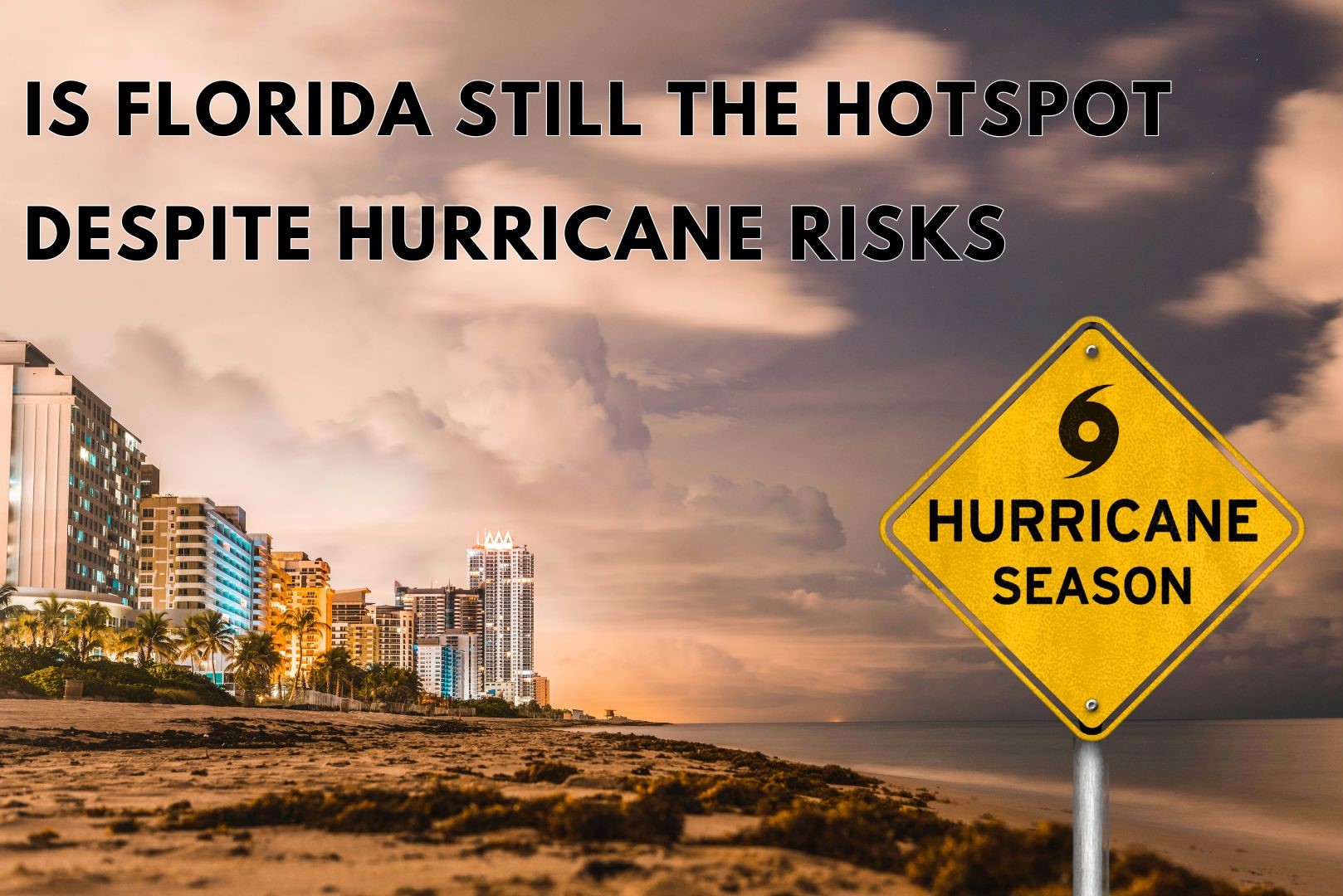As the sun-soaked state of Florida continues to attract homebuyers and investors alike, a pressing question looms over the vibrant real estate market: is it still a hotspot for investment despite the looming risks of hurricanes? With its beautiful beaches, year-round warm climate, and robust economy, Florida has long been a favorite among those looking to invest in properties. However, the increasing frequency and intensity of hurricanes pose a unique challenge to potential investors. In this article, we’ll explore the current state of Florida’s real estate market, weigh the risks against the rewards, and examine strategies for making informed investment decisions in a region known for its unpredictable weather.
How Hurricanes Affect Real Estate Investment
Hurricanes significantly impact real estate investment in several ways, influencing both the market dynamics and the decision-making processes of investors. Here’s an overview of how hurricanes affect real estate investment:
Property Damage and Repair Costs
Physical Damage
Hurricanes can cause extensive damage to properties, leading to costly repairs. This not only affects the property value but can also lead to significant out-of-pocket expenses for investors.
Insurance Costs
Investors often face higher insurance premiums in hurricane-prone areas. Some may struggle to find comprehensive coverage due to the perceived risk, affecting their overall investment strategy.
Market Volatility
Price Fluctuations
Following a hurricane, the real estate market may experience fluctuations in property values. Some areas may see a temporary drop in prices due to perceived risks, while others may rise as demand increases for rebuilds and renovations.
Investor Sentiment
The threat of hurricanes can lead to a cautious approach among potential buyers and investors, resulting in reduced demand and slower sales cycles.
Regulatory Changes and Building Codes
Stricter Regulations
In response to hurricane damage, local governments often implement stricter building codes and regulations aimed at enhancing structural resilience. While this can lead to safer properties, it may also increase construction costs and timelines for new developments.
Zoning Changes
Areas frequently impacted by hurricanes may see changes in zoning laws, which can restrict future development or alter the types of allowable structures.
Long-Term Investment Considerations
Resilience and Adaptation
Investors may focus on properties that incorporate resilient design features, such as elevated foundations and hurricane-resistant materials, which can be smart long-term with great value and appeal for buyers.
Location Assessment
The desirability of certain locations may shift based on historical hurricane activity. Investors often conduct thorough research to identify areas with lower risk profiles or robust disaster recovery plans.
Insurance and Financing Challenges
Risk Assessment
Lenders may increase scrutiny of properties in hurricane-prone areas, affecting financing options and terms. Investors may face challenges securing loans or may have to accept higher interest rates due to perceived risks.
Flood Insurance
Properties in flood-prone zones often require additional flood insurance, which can significantly increase monthly expenses and impact cash flow projections.
Potential for Opportunity
Investment Opportunities
Despite the risks, hurricanes can create unique investment opportunities, such as buying properties at lower prices post-disaster or investing in areas undergoing recovery and redevelopment.
Diversification Strategies
Investors may choose to diversify their portfolios by investing in a mix of properties across different regions to mitigate the risks associated with hurricanes.
Quick Look At Current House Price
Wellington
Wellington is known for its equestrian community and beautiful neighborhoods. The demand for homes, especially those with land for horses, has kept prices stable, and the area attracts buyers looking for luxury and outdoor activities. The average cost of a home in Wellington sits around $680,000.
Boca Falls
A family-friendly community, Boca Falls is known for having high-end properties in Florida, excellent schools, and extensive amenities, including parks and recreational facilities. The area has shown a steady appreciation in property values, making it a solid investment choice. Homes for sale in Boca Falls price at an average of $1.1 million.
St. Petersburg
St. Petersburg has experienced significant growth in recent years, with a revitalized downtown and a booming arts scene. The diverse housing options, from historic bungalows to new condos, offer potential for rental income and appreciation. The current cost of housing averages $435,000.
Lake Nona
Lake Nona is a rapidly developing community in Orlando, known for its innovative approach to living and healthcare. The area is attracting new residents, especially families and professionals, making it an attractive option for investors. Average housing costs in Lake Nona sit around $800,000.
Fort Myers
Fort Myers offers affordable housing options compared to other Florida markets. With a growing job market and an influx of retirees, the demand for homes is rising, providing opportunities for investors to enter a market with potential for growth. Homes for sale in Fort Myers average around $350,000.
While hurricane risks undeniably pose challenges to Florida's real estate market, the state's allure remains strong due to its vibrant economy, diverse communities, and continued population growth. Investors who are well-informed and prepared to navigate these risks can find lucrative opportunities in various locations, from family-friendly neighborhoods to thriving urban areas. By prioritizing resilience and adapting strategies to account for the unique climate challenges, investors can capitalize on Florida's enduring appeal and unlock the potential for long-term growth in this dynamic market. Ultimately, Florida continues to be a hotspot for real estate investment, attracting those willing to embrace both its opportunities and its challenges.










